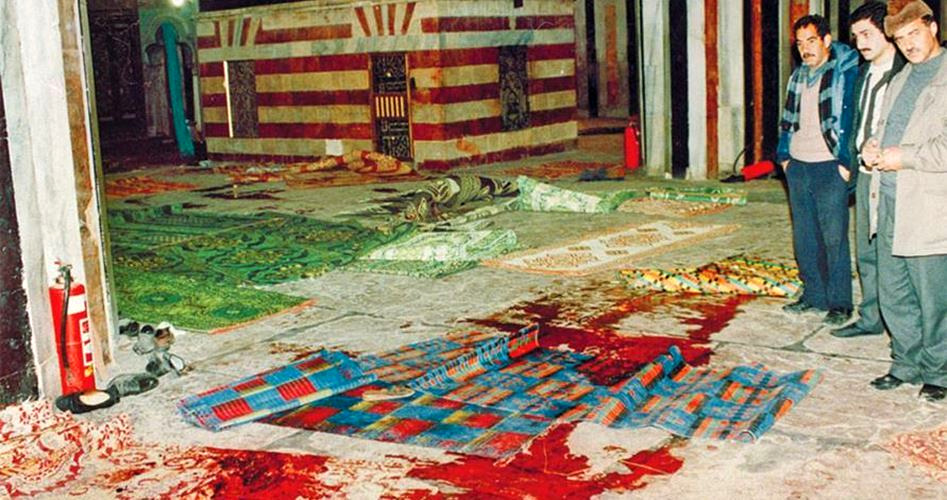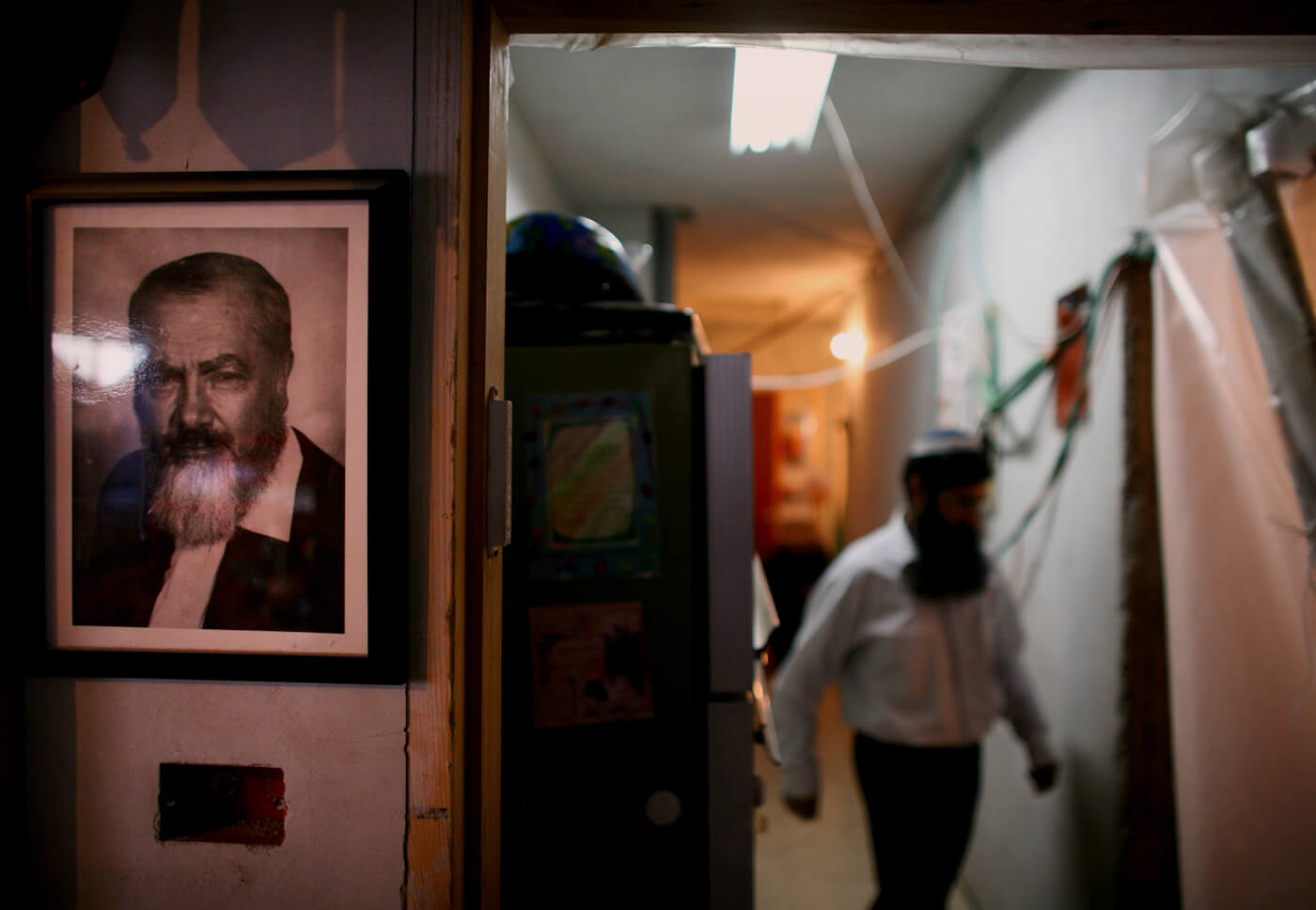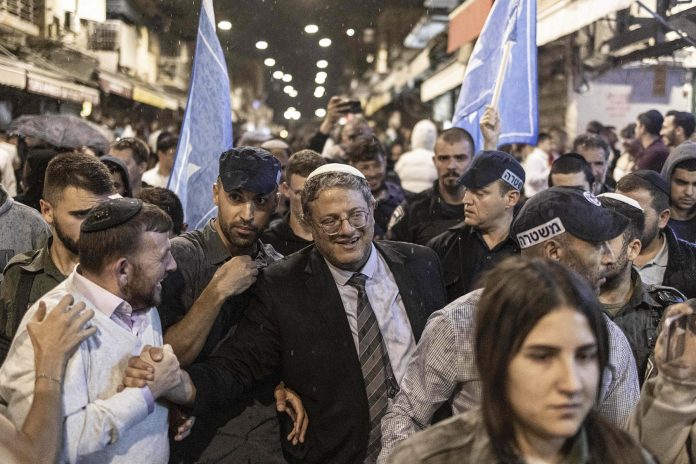Throughout history, fringe religious Zionist parties have had limited success in achieving the kind of electoral victories that would allow them an actual share in the country’s political decision-making.
The impressive 17 seats won by Israel’s extremist religious party, Shas, in the 1999 elections was a watershed moment in the history of these parties, whose ideological roots go back to Avraham Itzhak Kook and his son Zvi Yehuda Hacohen.
Israeli historian Ilan Pappé referred to the Kooks’ ideological influence as a “fusion of dogmatic messianism and violence.”
Throughout the years, these religious parties struggled on several fronts: their inability to unify their ranks, their failure to appeal to mainstream Israeli society and their inability to strike the balance between their messianic political discourse and the kind of language – not necessarily behavior – that Israel’s western allies expect.
Though much of the financial support and political backing of Israel’s extremists originate in the United States and, to a lesser extent, other European countries, Washington has been clear regarding its public perception of Israel’s religious extremists.
In 2004, the United States banned the Kach party, which could be seen as the modern manifestation of the Kooks and Israel’s early religious Zionist ideologues.
The founder of the group, Meir Kahane, was assassinated in November 1990 while the extremist rabbi – responsible for much violence against innocent Palestinians throughout the years – was giving another hate-filled speech in Manhattan.
Kahane’s death was only the start of much violence meted out by his followers, lead among them an American doctor, Baruch Goldstein, who gunned down on February 25, 1994, dozens of Palestinian Muslim worshippers at the Ibrahimi Mosque in Hebron.

The number of Palestinians killed by Israeli soldiers while protesting the massacre was nearly as many as those killed by Goldstein earlier in the day, a tragic but perfect representation of the relationship between the Israeli state and the violent settlers who operate as part of a larger state agenda.
That massacre was a watershed moment in the history of religious Zionism. Instead of serving as an opportunity to marginalize their growing influence by the supposedly more liberal Zionists, they grew in power and, ultimately, political influence within the Israeli state.
Goldstein himself became a hero, whose grave, in Israel’s most extremist illegal settlement in the West Bank, Kiryat Arba, is now a famous shrine, a place of pilgrimage for thousands of Israelis.
It is particularly telling that Goldstein’s shrine was built opposite Meir Kahane’s Memorial Park, which indicates the clear ideological connections between these individuals, groups, and funders.
In recent years, however, the traditional role played by Israel’s religious Zionists began to shift, leading to the election of Itamar Ben-Gvir to the Israeli Knesset in 2021 and, ultimately, to his role as the country’s National Security Minister in December 2022.
Ben-Gvir is a follower of Kahane. “It seems to me that, ultimately, Rabbi Kahane was about love. Love for Israel without compromise, without any other consideration,” he said in November 2022.
But, unlike Kahane, Ben-Gvir was not satisfied with the role of religious Zionists as cheerleaders for the settlement movement, almost daily raids of Al-Aqsa and the occasional attacks on Palestinians. He wanted to be at the center of Israeli political power.
It is an interesting debate whether Ben-Gvir achieved his status as a direct result of the successful grassroots work of religious Zionism or because the political circumstances of Israel itself have changed in his favor. The truth, however, might be somewhere in the middle. Israel’s historic failure of its so-called political left—namely the Labor Party—has, in recent years, propelled a relatively unfamiliar phenomenon—the political center.
Meanwhile, Israel’s traditional right, the Likud party, grew weaker, partly because it failed to appeal to the growing, more youthful religious Zionism constituency and also because of the series of splits that occurred after Ariel Sharon’s breaking up of the party and the founding of Kadima in 2005 – a party that has been long disbanded.
To survive, Israeli Prime Minister Benjamin Netanyahu has redefined his party to its most extremist version of all time and, thus, began to attract religious Zionists with the hope of filling the gaps created because of internal infighting within the Likud.
By doing so, Netanyahu has granted religious Zionists the opportunity of a lifetime.
Soon, following the October 7 Al-Aqsa Flood operation, and in the early days of the Israeli genocide in Gaza, Ben-Gvir launched his National Guard, a group which he tried, but failed, to compose before the war.
Thanks to Ben-Gvir, Israel, now, per the words of opposition leader Yair, has become a country with a “private militia.”
By March 19, Ben-Gvir announced that 100,000 gun permits had been handed over to his supporters. It is within this period that the US began imposing ‘sanctions’ on a few individuals affiliated with Israel’s settler extremist movement, a slight slap on the wrist considering the massive damage that has already been done and the tremendous violence that is likely to follow in the coming months and years.

Unlike Netanyahu, Ben-Gvir’s thinking is not limited to his desire to reach a specific position within the government. Israel’s religious extremists are seeking a fundamental and irreversible shift in Israeli politics.
The recent push to change the relationship between the judicial and exclusive branches of government was as crucial to those extremists as it was to Netanyahu himself. However, the latter has championed such an initiative to shield himself against legal accountability. Ben-Gvir’s supporters have a different reason in mind: they want to dominate the government and the military with no responsibility or oversight.
Israel’s religious Zionists are playing a long game, which is not linked to a particular election, individual or government coalition. They are redefining the state, along with its ideology. And they are winning.
Ben-Gvir and his threats to topple Netanyahu’s coalition government have been the main driving force behind the genocide in Gaza.
If Meir Kahane were still alive, he would have been proud of his followers. The ideology of the once marginalized and loathed extremist rabbi is now the backbone of Israeli politics.
Feature photo | An Israeli hardline nationalist supporter of Israeli army medic Sgt. Elor Azaria, wears a t-shirt with a drawing of Rabbi Meir Kahana, who founded extreme right wing Jewish movements, the Jewish Defense League and the ultranationalist Kach political party, outside the Israeli military court in Tel Aviv. Oded Balilty | AP
Dr. Ramzy Baroud is a journalist, author and the Editor of The Palestine Chronicle. He is the author of six books. His latest book, co-edited with Ilan Pappé, is ‘Our Vision for Liberation: Engaged Palestinian Leaders and Intellectuals Speak Out.’ His other books include ‘My Father Was a Freedom Fighter’ and ‘The Last Earth.’ Baroud is a Non-resident Senior Research Fellow at the Center for Islam and Global Affairs (CIGA). His website is www.ramzybaroud.net
The post How Jewish Extremists Became the New Face of Israel appeared first on MintPress News.
